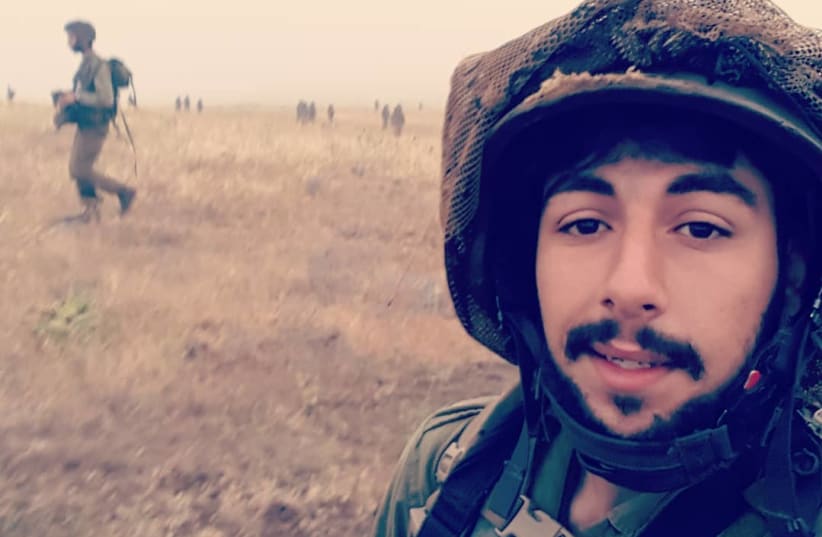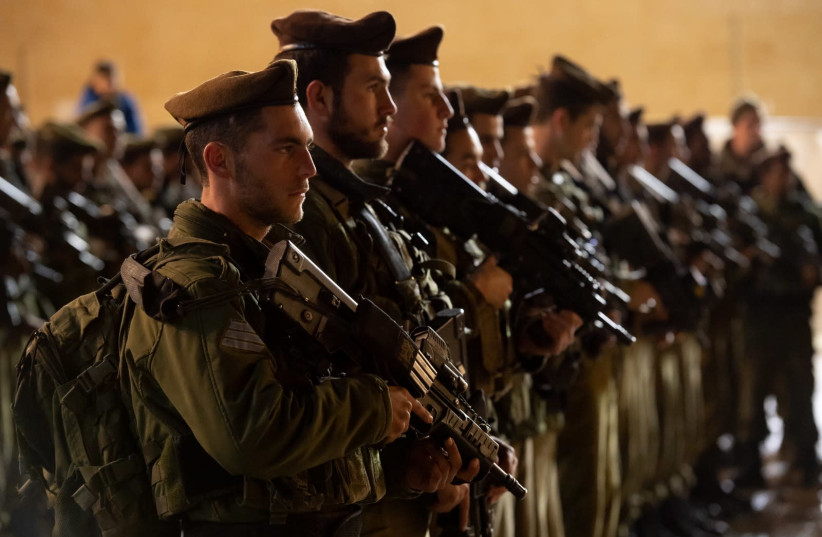With hi-tech companies grabbing veterans of the IDF’s technological units, one association is paving the way for combat veterans from the Golani Brigade to get coveted positions in multi-million dollar companies.
The Golani Association, which supports current soldiers, veterans of the brigade and bereaved families who lost loved ones serving in the combat brigade, has a new track for veterans of the brigade that aims to place them in the world of hi-tech.
Unlike veterans from combat units, intelligence units such as 8200 and others that are focused on technological innovation and cyber are automatic showcases for the private sector, with their veterans funneled into positions at hi-tech companies.
Combat soldiers, said Col. (res.) Avi Oved, chairman of the scholarship committee and program director of Golani to Hi-Tech at the Golani Association, “risked their lives, and when they finish their service they don’t continue to be a combat soldier. But they also don’t have a profession waiting for them like those who served in Unit 8200 [military intelligence].
“This is one of the ways we are helping veterans enter the job market. We wanted Golani soldiers to finish their military service and have the same capabilities as those who finished 8200 that go to hi-tech. They finish their service and don’t need to study, they have a place to work. Combat soldiers don’t have that.”
The program helps the veterans get into universities to study subjects like engineering or computer science.
“Eighty percent of Golani veterans don’t have their high school matriculation or... have good enough scores to learn subjects related to hi-tech in university,” Oved said. “But it doesn’t matter what their education is for this track. They don’t always have the knowledge but they have the abilities.”
The association helps those who don’t have their high school matriculation with a four-month-long preparatory mechina program, a year-long advanced matriculation course, and four years of studies at universities such as the Technion-Israel Institute of Technology in Haifa.
The association not only provides mentors for the vets to provide them with psychological help as well as help regarding employment, but it also connects the students to the hi-tech companies that are involved with the Golani Association.
According to Oved, they have been seeing a significant increase in interest in the program that began four years ago.
“We started with six and now we have 50 in the program, and another 50 have signed up for the program for next year,” he said.
Thanks to the program, Aviel Cohen went from combat to coding.
The 26-year-old veteran from Kiryat Yam, who was released from the IDF in 2017, always wanted to serve as a combat fighter in Golani. And while he always had an interest in computers, he did not have the education that would have allowed him to study at universities.
“When we finish our service, we aren’t like other soldiers in technological units,” he said. “There is a big gap and this program helps fix that. I wouldn’t have been able to get where I am without this association. I didn’t have my high-school matriculation. I didn’t know what I wanted to do after the army except that computers always interested me.”
With the program, he did the full track, including the preparatory mechina program, before he got into the Technion, something he never thought he would ever be able to do. Now in his second year studying computer science, he is a mentor for others in the program.
With the vets too busy studying to work, the association covers 100% of the costs during the first year, including the cost of a computer, and depending on individual cases, even up to 80% of their rent. Since they are able to start working during their next years at university, the association then covers up to 70% of the costs of their studies.
“We ask for only three things,” Oved said. “They need to be serious in every way of their studies, volunteer 60 hours to the community, and to be there for a bereaved family at least three times a year.”
For Oved, the success of Golani veterans like Cohen shows the importance of the program and the association.
“When you are released, we are here to help.”

